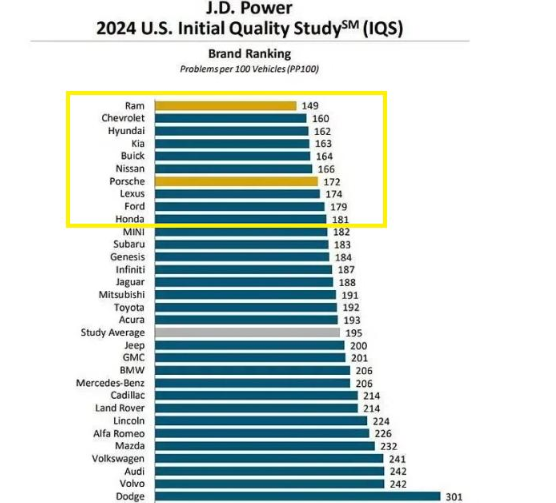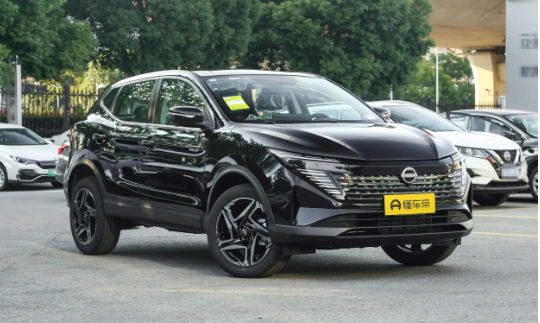Top Ten Brands with Reliable Quality Revealed by Foreign Media: Japanese Brands Miss Top Five, Kia Ranks Fourth, Honda Tenth
![]() 01/22 2025
01/22 2025
![]() 466
466
J.D. Power has unveiled its latest automotive reliability rankings, drawing widespread attention to the underwhelming performance of Japanese brands. According to the 2024 J.D. Power Initial Quality Study (IQS) report, RAM emerged as the champion with 135 PP100 (problems per 100 vehicles), followed by Chevrolet, Hyundai, Kia, and Buick rounding out the top five positions. Notably, Japanese automakers fell behind, with Honda settling at tenth and Toyota failing to make the top five.
1.
Korean and American Brands Surge Ahead
Korean and American brands dominate the top ten rankings. RAM leads the pack with 135 PP100, followed closely by Chevrolet with 160 PP100. Hyundai, Kia, and Buick occupy the third to fifth spots, respectively, with PP100 values all below the industry average of 190.

Korean brands particularly shone, with Kia maintaining its reputation for reliability due to its consistent quality and low failure rates. Hyundai and Genesis have also emerged as formidable players in the North American market. Among American brands, Chevrolet and RAM distinguished themselves, especially RAM, the Chrysler sub-brand, which achieved remarkable quality control post-independence and clinched the top spot.
2.
Japanese Brands Encounter Setbacks
Japanese brands, once synonymous with reliability, faced a disappointing performance this time around. Honda ranks tenth with a PP100 value of 181, while Toyota barely meets the standard with 166 PP100. Despite long-standing consumer trust in the domestic market, Japanese cars have seen a notable decline in reliability in recent years.

The reasons behind their poor performance include engine issues, transmission failures, design flaws, and challenges with infotainment systems, all of which have directly impacted their ranking in reliability studies.
3.
Luxury Brands Perform Averagely
Among luxury brands, Porsche and Lexus occupy the seventh and eighth positions, respectively, but both have slipped compared to previous years. Porsche's PP100 value stands at 252, while Lexus is at 190, both exceeding the industry average. Brands like Mercedes-Benz and BMW performed averagely and did not make the top ten.
It's worth noting that there are disparities between the Chinese and North American markets. In China, Japanese brands continue to dominate. However, with the proliferation of new energy vehicles and evolving consumer demands, domestic brands are gradually closing the gap with international counterparts.
This list underscores the importance for consumers to consider not just non-core factors like appearance or interior when choosing a car, but also the quality and reliability of the vehicle. Major automakers must prioritize product quality and continually enhance their technical capabilities to excel in the fiercely competitive market.








